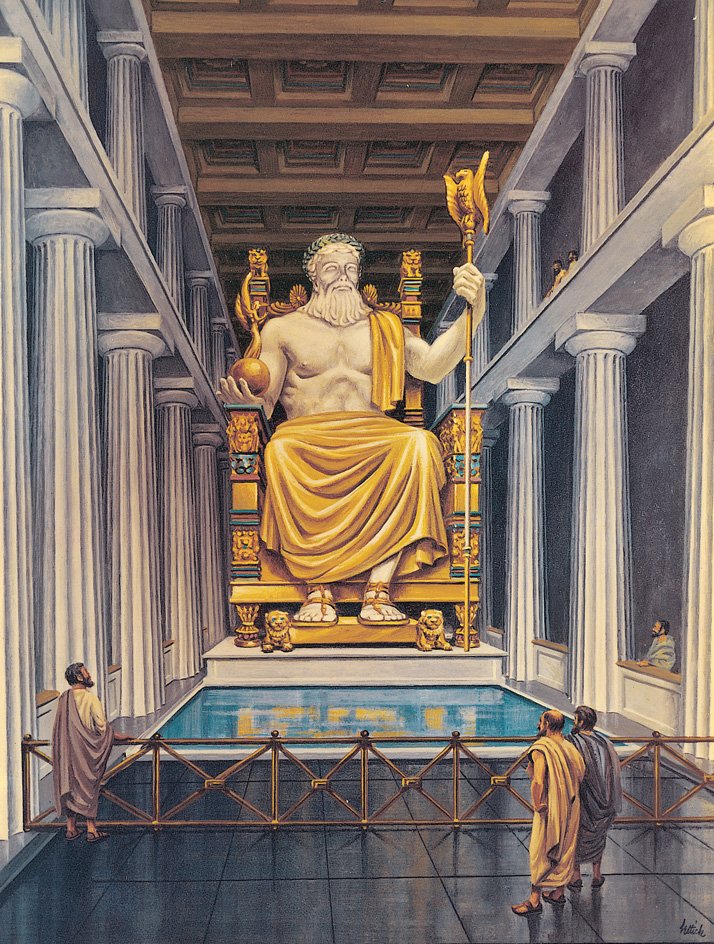Ancient Olympic Games were an athletic competition that played an important role in the lives of the ancient Greeks . The games were held from 776 B.C. to A.D. 393. The ancient Olympics served as inspiration for the modern Olympic Games , which began in 1896.
History.
Athletics played an important role in the religious festivals of ancient Greece. Historians believe the ancient Greeks first organized athletic games as part of funeral ceremonies for important people. This practice probably existed by the 1200’s B.C. Later, games became part of religious festivals honoring the gods. Many Greek cities held festivals every two or four years.
Over time, four great religious festivals developed that brought together people from throughout the Greek world. These festivals were the Isthmian , Nemean , Pythian, and Olympic games. The Olympic Games, which ranked as the most important, honored Zeus , the king of the gods.

The games.
The first recorded Olympic contest took place in 776 B.C. at Olympia in western Greece. The first winner was Koroibos (also spelled Coroebus), a cook from Elis. The Olympic Games were held every four years. They were so important to the ancient Greeks that time was measured in Olympiads , the four-year intervals between games. The only event in the first 13 games was the stadion, a running race of 192 meters (210 yards). Through the years, longer running races were added.
Other types of competition became part of the ancient Olympics. In 708 B.C., wrestling and the pentathlon were added. The pentathlon was a combination of jumping, running, the discus throw , the javelin throw, and wrestling. Boxing joined the program in 688 B.C., and the four-horse chariot race was added in 680 B.C. Horse racing was included in 648 B.C., as was the pancratium (also spelled pankration), a combination of boxing, wrestling, and kicking. Some unusual events were included in the Olympics, such as a race in armor, a chariot race called the apene in which two mules pulled the chariot, and a competition for trumpeters.
The ancient Olympics produced several famous champions. Milo of Kroton won the wrestling competition five times between 532 and 516 B.C., and Leonidas of Rhodes won three running races in each of four Olympics from 164 to 152 B.C.
The Romans conquered Greece during the 140’s B.C., and the games soon lost their religious meaning. In A.D. 393, the Roman Emperor Theodosius I banned the games.
